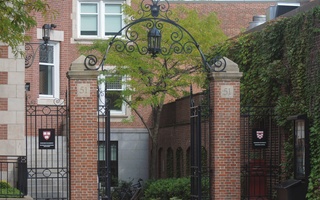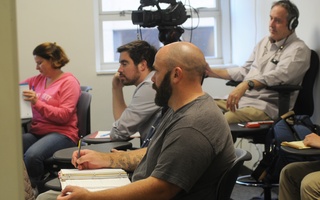{shortcode-3a2cf9a1ac2ff8ac89b5f6857708d29fba5f8cde}
The Faculty Council approved a preliminary list of courses for the 2018-2019 academic year and heard presentations on a potential Extension School program and the ongoing construction in Allston at its biweekly meeting Wednesday afternoon.
The Council—the Faculty of Arts and Sciences’ highest governing body—received a list of FAS courses for the next academic year in its annual review of course offerings. The list includes courses available to both undergraduate and graduate students as well as courses at the Extension School. Though some courses were missing details on times and section scheduling, the Council chose to formally approve the courses, and the entire Faculty will have a chance to vote on the list of courses at its next meeting.
“There are a lot of details that have to be still settled, so there will be corrections to the list over the coming months,” Council member David L. Howell said.
FAS will release a final list of course offerings in June.
The Council also heard a presentation from Dean of the Division of Continuing Education and University Extension Huntington D. Lambert on a possible collaboration between the Extension School and MIT’s “MicroMasters” program.
MIT’s program allows students to take online courses to earn a MicroMasters credential, which will then qualify them to apply for a Master’s degree at MIT and other universities. The Extension School is currently considering a collaboration with MIT that would allow students who earn a MicroMasters credential to apply to Master’s programs within the Extension School.
Katie Lapp, the executive vice president of the University, and Shaun L. Donovan, the senior strategist and advisor to the president on Allston and campus development, updated the Council on the state of construction on the Allston campus. They also spoke about their vision for the campus, which they said will include other Harvard programs in addition to the School of Engineering and Applied Sciences.
One potential addition they spoke about was the creation of arts-making and performance spaces. They also said that they would like the new campus to be open to Allston residents.
“They want to make it a real neighborhood, not just an office park or campus buildings,” Howell said. “It sounded very attractive.”
Read more in Faculty News
Racial Equality Advocacy Group Gives Harvard Medical School a B-

















